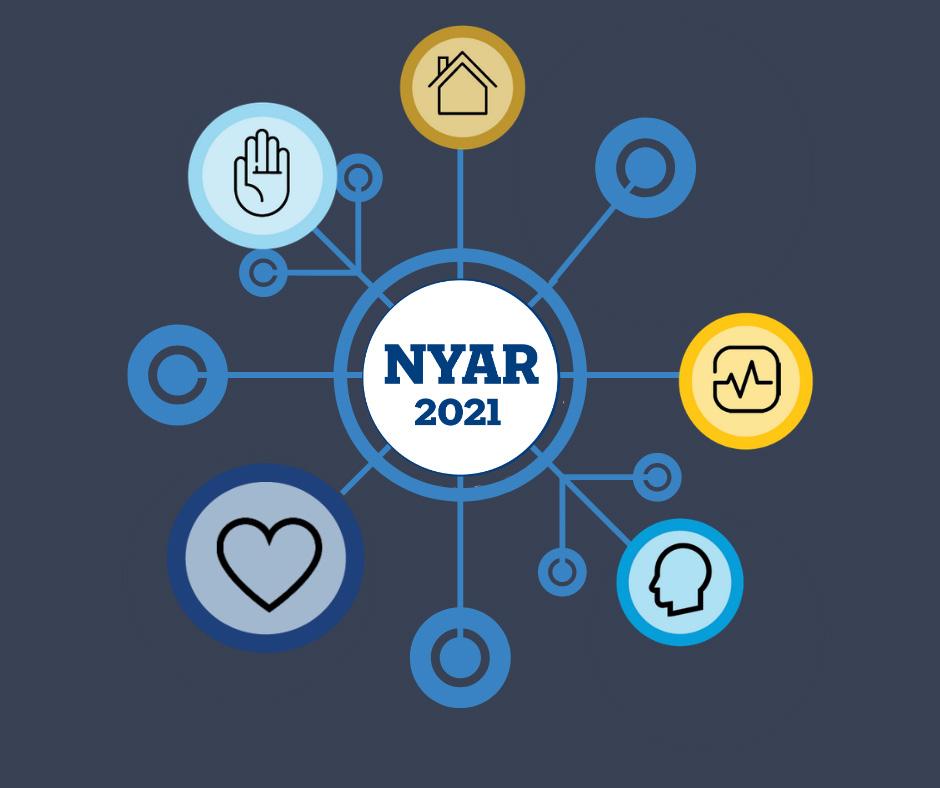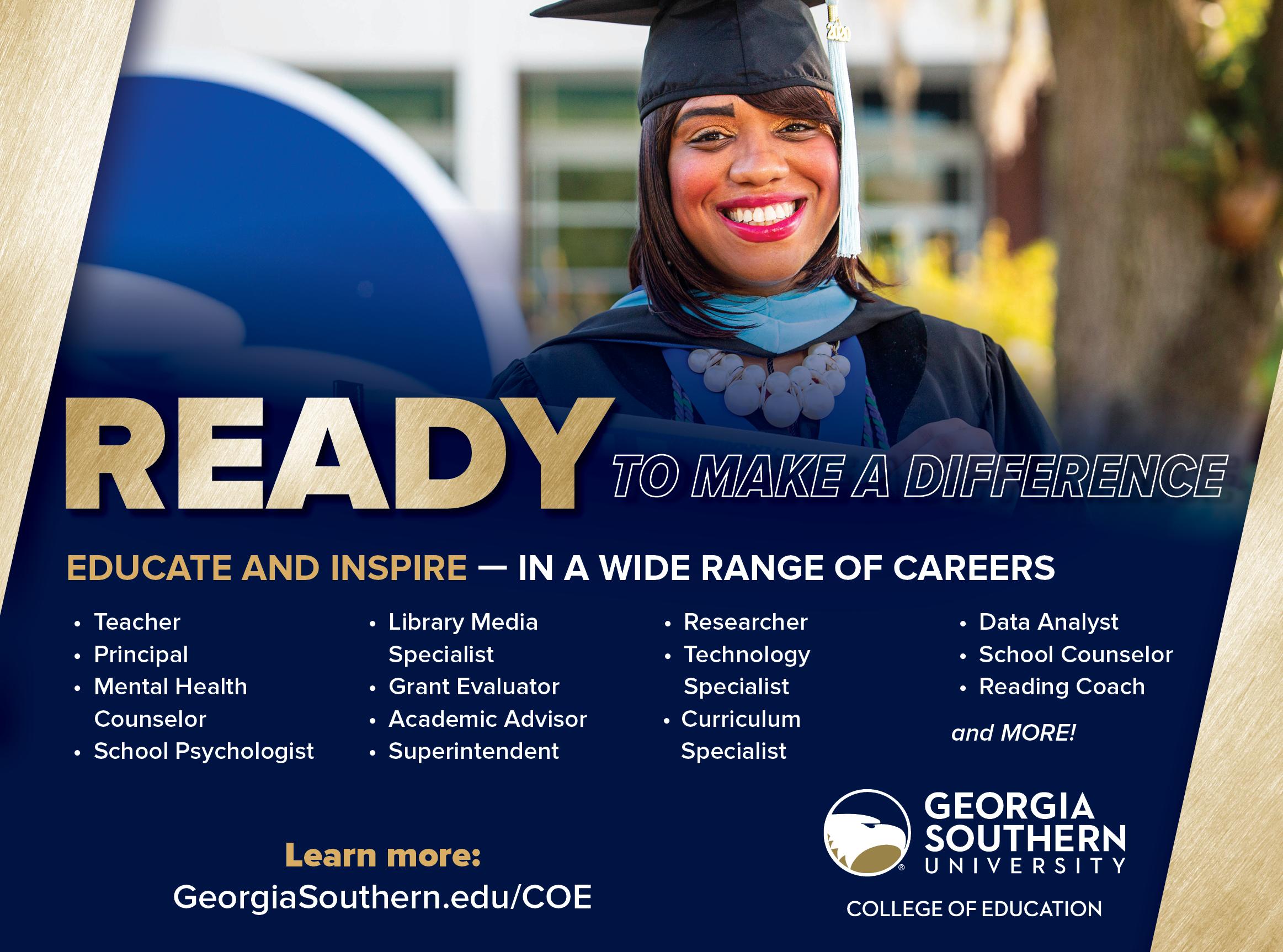
6 minute read
Session Six
Preparing to Be a Professional
Alexandria Griner, MPH, University of Georgia, Calhoun, GA Abbie Salmon, MAEE, University of Georgia, Rome, GA This presentation will cover a series of lessons created by University of Georgia faculty to teach youth basic professionalism skills. These lessons provide simple guidelines and practical activities for all youth to learn to present themselves to others as a professional.
Connection Matters: Amplify the Strengths in Your Community Through Connection!
Amy McDonald, MEd, Southeast Island School District, Thorne Bay, AK David Pavish, Brightways Learning, Missoula, MT When youth and adults develop healthy connections, the impact sends positive ripples throughout schools and communities. These connections build webs of support that take youth from where they are to where they want to be in life. Learn a practical, easy-to-implement framework and language that will change the trajectory of students in the home, school, and in life.
12:25 - 1:40 p.m. Break for Lunch
1:40 - 2:40 p.m. Session 6 Breakouts
HELP! I am Quarantined with My Children and My Students: Self Care for Those Who Care for Others
LaMarr D. Shields, PhD, Cambio Group, Baltimore, MD This interactive workshop sets the stage for participants to create an individualized annual self-care plan to foster life balance. The workshop provides an opportunity to learn in confidential, small-group discussions, and through hands-on participation. Professionals learn how to reimagine their daily routines and find ways to nurture and sustain themselves to build resiliency.
Support and Wellness 4 the Wounded Educator
Dardi Hendershott, Hope 4 The Wounded, LLC, Columbus, OH Educators face a vastly different reality in today’s classrooms than most were prepared for while earning their credentials. The tensions between their calling and the reality of their profession can create a growing sense of compassion fatigue. The need to incorporate effective self-care is essential in developing and sustaining a comprehensive approach to social emotional learning and wellness. This training provides a comprehensive, practitioner-based approach that attends to the overall wellness of educators on a personal level while also seeking to create safe professional environments where wounds are acknowledged and hope and healing are possible.
Responding to the Epidemic of Student Stress and Anxiety
Leigh Beggs Colburn, EdS, The Centergy Project, Marietta, GA Linda Beggs, EdS, The Centergy Project, Marietta, GA Many of our children are growing up in a reality of trauma, 2020 stressors, competitiveness, hyperconnectedness and over-exposure. As a result, there are a record-high number of students experiencing stress and anxiety. In this session, the presenters will explore current statistics, research, student voice and actionable ideas for how a school can best respond to the emotional needs of its students.
Georgia Youth ChalleNGe Program–A Life Saving Impact
David Bill, MPA, MS, Georgia Youth ChalleNGe Program, Milledgeville, GA The consequences of dropping out of high school can have serious, long-term repercussions not only for individuals, but for families, communities and society at large. The Georgia Youth ChalleNGe Program was created as a means to provide a positive future to those who believe that there is a better life if they would only make a decision to Rise to the ChalleNGe! The Georgia Youth ChalleNGe Program is a voluntary alternative education program open to 16 to 18-yearolds who are behind academically or have already left school and who are looking for a way to change their lives through education, service to community, physical fitness and life skills training. This 22-week residential military-style, tuition-free program helps young people earn their GED, or High School diploma and offers pathways to enroll in college, enter the workforce or join the military. Since 1993, Georgia has graduated over 17,700 young people from this program and over 50% have earned an academic credential, either a GED or High School diploma, that provided them the ticket to a more productive future.
Building Capacity for SEL Across a Large School District
Traci Wilke, EdS, St. Lucie Public Schools, Port St. Lucie, FL Cassey Chang, LCSW, St. Lucie Public Schools, Port St. Lucie, FL Christina Coppola, MSW, St. Lucie Public Schools, Port St. Lucie, FL Learn how a South Florida School system utilizes its Title IV dollars to create and maintain the state’s first district SEL Department. Participants will explore the systemic approach St. Lucie Public Schools took to establish SEL as a prevention to mental health issues in 40 schools at the elementary, middle and high school levels. Implementation emphasizes three prongs of explicit instruction, instructional integration and infusion into school climate and culture.
The Restorative Path to School District Transformation
Louis Fletcher, PhD, School District 49, Colorado Springs, CO David Watson, School District 49, Falcon, CO The Director of Culture & Services and the Director of Safety & Security for a Colorado School district with 27,000 students will share strategies, techniques, and experiences, which have cultivated restorative practices (RP) in their district. The presenters will discuss the criticality of relying on proactive strategies (restorative practices mindset) versus defaulting to an overreliance on reactive techniques (restorative justice mindset), provide successful alternatives to traditional punishment, conduct a simulated restorative expulsion hearing, and highlight the district’s partnership with both law enforcement and the court system in their community.
ACT to Save a Life: Evidence-Based Youth Suicide Prevention
Meghan Diamon, LCSW, MindWise Innovations, Dedham, MA This session will use SOS Signs of Suicide as an example of an evidence-based, universal prevention program for 10 to 18-year-olds. SOS uses video, classroom discussion and mental health screening to encourage students to ACT (Acknowledge, Care and Tell a trusted adult). Participants will learn about universal mental health screening and concrete strategies for training youth and adults in suicide prevention. The presenter will also discuss best practices developed and lessons learned from a year of virtual/hybrid suicide prevention training for youth.
New Thought on How an Understanding of Thought Prevents Violence
Stephanie Fox, MA, The Spark Initiative, Washington, DC Ashley Hunt, AA, The Spark Initiative, Brandon, FL The Spark Initiative’s work and research with youth at risk in schools, jails, and foster care has proven that a simple understanding of the mind has increased resilience, emotional regulation, impulse control, decisionmaking, problem-solving and communication skills, all critical to violence prevention. This presentation will explore how an understanding of the mind and thought could be the missing key to violence prevention at all levels–from violence against oneself to global terrorism and everything in between.
The Professional Development School Model: Strategies to Promote Equity and Success in High Needs Schools
Ellen Whitford, EdD, Georgia Southern University, Savannah, GA Kathleen Crawford, EdD, Georgia Southern University, Statesboro, GA Amanda Wall, PhD, Georgia Southern University, Statesboro, GA This session will describe how a Professional Development School (PDS) model can effectively support teacher preparation, teacher professional development, and research to meet the needs of at-risk students. Strategies for the establishment, implementation, and sustainability of PDS partnerships will be discussed. Examples will include both urban and rural schools.
Using Digital Storytelling for Teaching Science to African American Youth
Nile Stanley, PhD, University of North Florida, Jacksonville, FL Steffani Fletcher, MEd, CAPF, Hope at Hand, Inc., Jacksonville, FL For five years, a unique, community partnership between the University of North Florida, Duval County Public Schools, Guardian Catholic School, and the Cummer Family Foundation has promoted innovative, multimodal science instruction for African American youth. The purpose of this session is for participants to learn how digital storytelling creates multiple paths to science literacy through creating digital media stories, culturally responsive songs, and raps to increase children’s agency, motivation, and engagement in learning science.
How To Build An Effective Mentoring Program
Antoinette Dunstan, BA, The First Ladies Youth Leadership Foundation, Inc., Stockbridge, GA Monica Seeley, EdS, Rockdale County Public Schools, Stockbridge, GA While few students have been sick with COVID-19, education disruptions and national social unrest have impacted the social emotional stability of 56.4 million children. One resource bridging the student, the family and the community is a multi-tiered mentorship program. School/community/faith-based mentorship programs effectively addressing disparities by integrating cultural awareness curricula build our rising leaders. Attend this workshop designed to show how this is done effectively.




